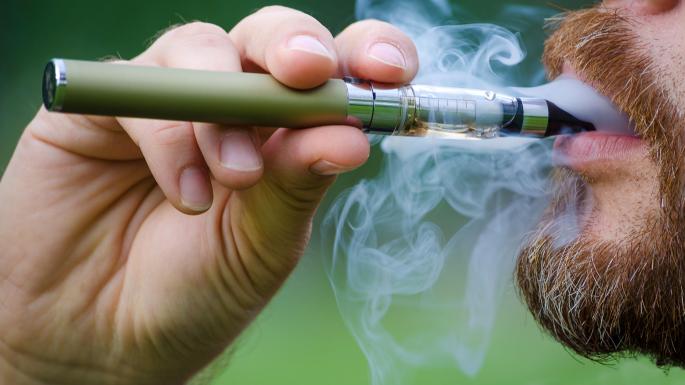Vaping, smoking restrictions neither necessary, fair

As public health leaders, we have been deeply troubled by an alarmist turn in the tone of the electronic cigarette debate and calls for wide-reaching bans that could keep an important tool out of the hands of smokers who want to quit.
The Food and Drug Administration’s recent plan to crack down on underaged sales and impose a temporary ban on all but tobacco and menthol flavors in cartridge-style vape products appears to be an attempt to find balance between protecting youth and maintaining the availability of products with the power to save adult lives.
We are hopeful that the FDA continues to see vaping nicotine as a safer alternative to smoking and ultimately approves flavors that appeal to smokers but not youth. Yet we are also concerned that the action on flavors may ultimately make combustible products more attractive.
In the Dec. 13, 2019 article “Evidence, alarm and the debate over e-cigarettes” in the journal Science, we warned that vaping bans will do more harm than good if they conflate three different issues: nicotine vaping that may save millions of smokers from deadly cigarettes, the steep rise in teen vaping and the sudden rash of deaths and illness from vaping THC cartridges containing vitamin E acetate, an additive that can damage the lungs when inhaled.
My co-authors included Dean Cheryl Healton and David Abrams of NYU’s Global College of Public Health; Dean James Curran of Emory University’s Rollins School of Public Health and Ronald Bayer of Columbia University.
Across-the-board bans may feel emotionally satisfying, but they ignore the scientific evidence.
Were there no strong evidence supporting vaping for harm reduction, and were combustible cigarettes not so deadly, it might make sense to at least temporarily ban all vaping products.
But evidence that vaping helps smokers quit continues to mount. Vaping nicotine isn’t harmless, but it’s far safer than smoking. With rigorous regulation, vape products could be improved and deemed much safer than tobacco smoke in the foreseeable future and save millions of lives.
It is important to recognize that there is a legal retail market and a black market for vaping products.
We agree with the CDC’s recommendations to avoid THC cartridges and vaping products from black market or other informal or unknown sources and urge strong regulation to maximize safety.
For smokers, the best option is to quit. For those who cannot or will not, we strongly urge switching completely or remaining on less-harmful nicotine vaping products from legal sources. The yardstick against which we judge risk must be smoking traditional cigarettes.
Smoking kills 7 million people worldwide and 480,000 Americans each year.
Headlines highlighting studies that identify toxins in vaping products can be scary. But strong evidence shows that smokers are exposed to many more toxins and at far higher doses.
We are concerned about across-the-board measures to restrict flavors in vape products. We have evidence that smokers who vape nicotine with flavors are two to three times more likely to quit smoking. It is critically important to find a vape that is satisfying enough to help a smoker move completely away from cigarettes.
The increase in youth vaping is a serious challenge that demands action. The FDA’s new determination to prevent underaged sales and predatory marketing could help. By moving to raise the minimum age to purchase tobacco and nicotine vaping products to 21, the FDA’s power to protect youth and keep both combustible and vaping products out of schools is greatly enhanced.
We urge muscular enforcement but underscore that the burdens must fall on retailers, not youth or minority communities.
We also stress that it is irresponsible to leave appealing, toxic tobacco such as menthol cigarettes and flavored little cigars in stores and gas stations throughout the nation while banning flavors in vapes.
Though it’s good news that we’ve seen youth smoking rates drop rapidly, the latest National Youth Tobacco Survey shows that more young people are smoking flavored cigars than cigarettes.
Reasonable regulation can contain youth experimentation and the black market. The time has come to engage in transparent discussion of the evidence, communicate accurate information to the public and resist the prohibitionist impulse.
Amy Lauren Fairchild is dean of the College of Public Health at Ohio State University.
Originally published here: https://www.dispatch.com/opinion/20200226/vaping-smoking-restrictions-neither-necessary-fair/1 Republished because of EU website restrictions



